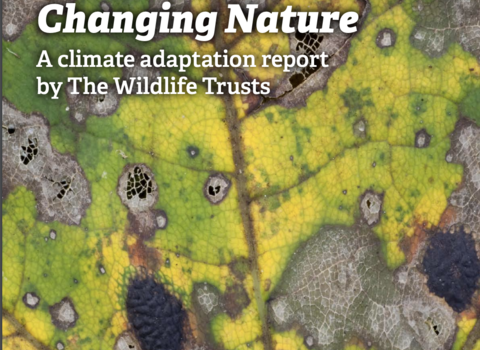A new report published today, Wednesday 6 July, by The Wildlife Trusts, the UK’s sixth largest landowner reveals that society must help nature adapt to the climate crisis and be prepared to see wild places change in order to survive.
The Wildlife Trusts’ first climate risk assessment, Changing Nature, examines the impacts of the changing climate across their estate nationwide, which covers nearly 400 square miles. It assesses the risks and looks ahead at what is needed to help nature adapt and survive in the future. The findings come at a time when the UK is already one of the most nature-depleted countries in the world.
- Projected impacts on The Wildlife Trusts’ estate show scale of climate crisis in an era of dramatic nature decline
- The Wildlife Trusts are increasing action to cope with climate change-induced floods, fires, low river flows, high temperatures, coastal erosion, and drought
- Innovative projects help nature adapt to change such as beaver releases, rewetting peatlands and restoring entire landscapes
The research finds that, by the 2050s, under a future warming trajectory that reaches 3°C warming by 2100:
- Half of The Wildlife Trusts’ nature reserves will have 30+ days of very high fire risk yearly
- Almost all reserves will see more than 1°C increase on hot summer days by 2050
- 55% of reserves will see nearby river flows drop by more than 30% during times of low flow
The report shows how extreme weather is already affecting many Wildlife Trust reserves, including:
- Wildfires – have destroyed valuable and rare habitats, affecting the availability of food for wildlife, and costing huge amounts of time and money
- Flooding – has impacted wildlife, damaged infrastructure, and increased river pollution
- Droughts – have lowered the water table on wetland nature reserves, dried out chalk streams and peat bogs, and concentrated pollution in rivers
The Wildlife Trusts want to see increased effort from governments, business, and other landowners on climate adaptation, including greater investment in nature-based solutions and a specific focus on resilience.


